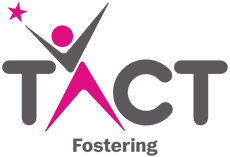TACT is deeply concerned about the treatment of unaccompanied children seeking asylum and the proposed changes to the asylum system outlined in the New Plan for Immigration, all of which will have a very damaging effect on refugee children and young people.
TACT’s key concerns include:
- The proposal for a National Age Assessment Board for determining the age of unaccompanied children seeking asylum.
- The inadequate funding and support for local authorities to care for them.
- The unacceptable provision of independent and often unregulated accommodation for 16-18 year-olds.
TACT CEO, Andy Elvin said: “The current treatment of asylum-seeking children is cruel and must end. The existing system and proposed changes have no regard for children’s safeguarding and are entirely rooted in the “hostile environment” mindset which has informed the Home Office approach for over 10 years. Children and young people are compelled to leave their countries to escape danger and persecution, enduring enormous trauma and hardship to get to the UK, only to then be neglected.”
- The proposal for a National Age Assessment Board for determining the age of unaccompanied children seeking asylum
There are too few details being provided about the new system and many unanswered questions remain, including who will sit on the new Assessment Board and how much the social work sector will continue to be involved in the process. TACT has long advocated that only social workers assess children, and that their vulnerability and need for support are taken into account, rather than a narrow determination of age which is often incorrect.
The new system will also introduce “scientific methods” to determine age, though no details have been provided on what these methods will be. There is currently no scientific method that can accurately determine age, and current Home Office guidance does not recommend such methods due to the large margins of error involved. TACT opposes the use of “scientific methods” due to their ineffectiveness, as well as the ethical concerns of subjecting vulnerable children to invasive medical interventions.
The plan also proposes a “fast-track” appeals process for age assessment, in an attempt “to avoid excessive judicial review litigation”. In reality, the effect of a pared down appeals process will be to limit the legal options for those judged to be adults. Changes to how the margin of error is defined is a further example of the system being stacked against the child’s best interest. Currently, there is a safeguard in place that a child’s age will only be disputed if there is reason to believe they are over the age of 25. In the new plan, this will be replaced with the far more subjective threshold of “appear significantly over the age of 18 years.”
- The unacceptable provision of independent and often unregulated accommodation for 16-18 year olds.
While many USAC are in foster care, there is evidence that a majority of 16-18 year olds are placed in independent or semi-independent accommodation. This practice is completely unacceptable. These young people would benefit immensely from the support that a foster placement can provide. Unaccompanied children seeking asylum have just as much need for care as other children without legal guardians, with the additional challenge of navigating an entirely new society. Foster carers are perfectly placed to be the strong advocate and compassionate guardian that these children need.
Fiona, TACT foster carer: “This approach, using unregulated accommodation is a national disgrace. It positions young people seeking asylum as ‘unworthy’ of best interests’ provision. These vulnerable young people, many of whom have been trafficked, find themselves in accommodation which enhances their vulnerability.”
- Inadequate funding and support for local authorities to care for unaccompanied children seeking asylum
Despite boosting funding for local authorities caring for unaccompanied children seeking asylum last year, this funding remains inadequate and places undue financial responsibility on local authorities’ budgets. Kent County Council’s recent legal challenge and warning it may soon turn away children seeking asylum brings this issue into urgent focus. Kent CC have called on other local authorities (LAs) to take in asylum seeking children arriving in Kent through the National Transfer Scheme (NTS), but it is not mandatory even though the Home Office could make it so. Many LAs will not sign up to the NTS voluntarily as the Home Office underfund the true costs of looking after unaccompanied children seeking asylum. As a result, only 52 of the 242 unaccompanied children seeking asylum arriving in Kent this year have been transferred to other LAs.
The Home Office cannot reasonably expect LAs to voluntarily “do their part” whilst incurring large financial shortfalls. The Home Office must ensure that the responsibility for caring for asylum seeking children is shared among LA’s by making the scheme compulsory and providing them with funding that meets their costs in full.
A further consequence of chronic underfunding is that when transfers do happen, they take far too long to go ahead. The result is that children seeking asylum who have settled into a loving foster home are then transferred away to a new home and school, reviving traumatic feelings of separation.
- An end to the uncertainty that brings stress and anxiety to vulnerable children
Finally, the government should seek to provide stability and certainty to these vulnerable children and young people. All children seeking asylum have experienced some degree of trauma, and one in four meet the criteria for a diagnosable mental health issue. The unnecessary stress and anxiety caused by the uncertainty of their status and the prospect of their deportation to unsafe countries is inhumane.
If it is not in the child’s best interest to be reunited with family in either their home or a third country, then the child should be placed under a care order to the receiving local authority and granted indefinite leave to remain in the UK. A joint Family and Immigration Court would be the ideal way to achieve this to ensure proper oversight of the process, rather than an ad hoc politician-appointed panel.
Read Debbie’s story about fostering a refugee child. https://www.tactcare.org.uk/case-studies/my-daughter-a-refugee/



